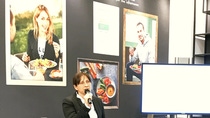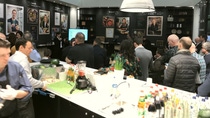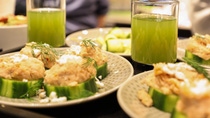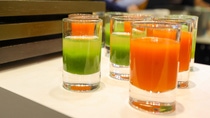Media
20 Years High Wire Cucumber Event
To pack or not to pack?
We live in a time of reflecting our behavior and habits to secure the quality of life for the generations to come. Topics such as sustainability, environmental protection, and waste reduction do not only play a crucial role in the public debate but also lead to a change in our shopping and consumption behavior. Recent studies show that consumers are increasingly opting for products that create as little packaging waste as possible. As a result, more and more supermarkets are offering unpacked products or replace specific types of packaging on their shelves with a focus on avoidance of plastics.
We at BASF Vegetable Seeds are engaged in this transition and organized a ‘Morning Snack
Session’, during Fruit Logistica 2020 in Berlin. During this session, Anne Jancic (Marketing and Business Development High Tech at BASF Vegetable Seeds) and guest speaker Victoria Wessolowski (coordinating BASF’s Industry Team Packaging Europe) took cucumber enthusiasts from all over the world onto a journey into consumers’ eyes and shared facts & figures around sustainable packaging. Afterwards there was time for Q&A. Lead by Account Manager Cucumber Rens Muusers, the group discussed about the challenges they are facing, accompanied with some delicious cucumber snacks.





